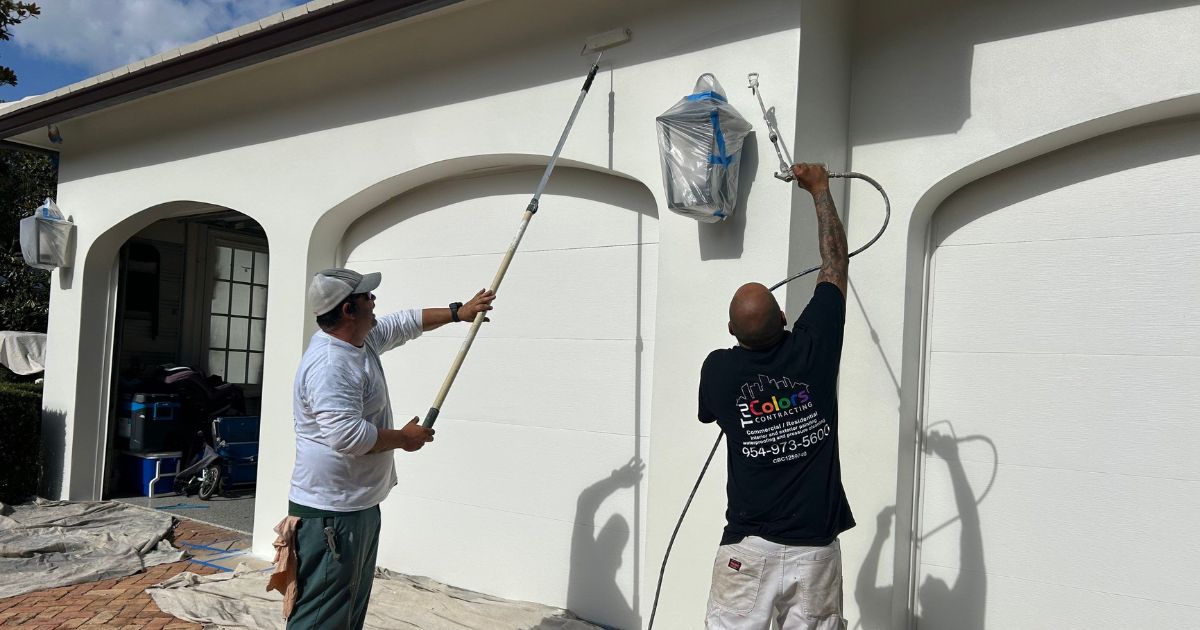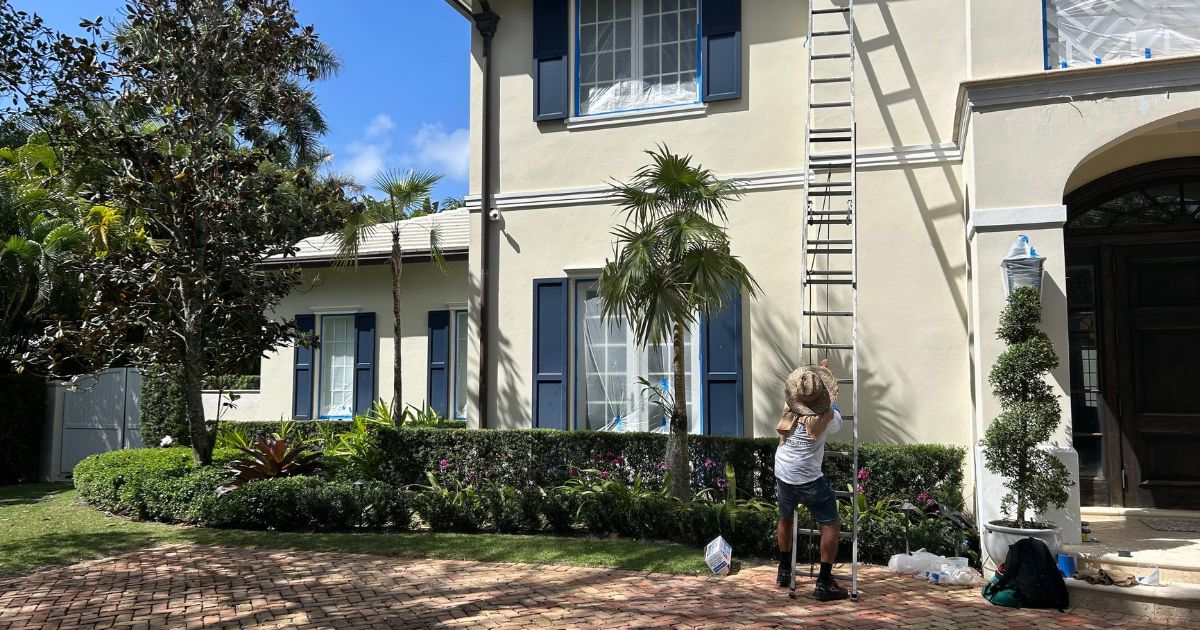When it comes to painting the exterior of your South Florida home or commercial property, choosing the right paint is critical. At Tru Colors Contracting, we know that the best exterior paint doesn’t just deliver a beautiful finish—it must also withstand the Sunshine State’s intense heat, humidity, UV exposure, salt air, and sudden rainstorms.
jWhether you’re refreshing stucco, revitalizing siding, or updating outdoor wood and metal surfaces, the right exterior paint makes all the difference. From expert-preferred products to performance under extreme weather conditions, here’s everything you need to know to choose the best exterior paint for your project.
What to Consider When Choosing the Best Exterior Paint
Before diving into the top exterior paint options, it’s important to understand what sets a high-performing paint apart. Florida’s climate is tough on building exteriors, so the paint you select should check these essential boxes:
1. Surface Compatibility
Is the paint formulated for stucco, brick, concrete, wood, or vinyl siding? Some paints bond better to certain materials.
2. Durability & Flexibility
Choose paint that expands and contracts with changing temperatures without cracking or peeling.
3. UV and Salt Air Resistance
Florida’s sun and coastal air are unforgiving—paint must resist fading, chalking, and corrosion.
4. Moisture and Mildew Resistance
Humidity levels in Florida stay high. Moisture-resistant and mildew-fighting paints are a must.
5. VOC Levels
Low-VOC (volatile organic compounds) options are safer for families, pets, and the environment.
6. Ease of Application
Consider how the paint applies—some work better with a sprayer, roller, or brush.
1. Acrylic Latex Paint
Best For: Most exterior surfaces including stucco, fiber cement, wood, and vinyl siding
Acrylic latex is the go-to exterior paint for Florida properties. It’s water-based, low-VOC, flexible, and easy to clean—all essential for South Florida homes. Acrylic latex paint resists cracking, blistering, and mildew, making it perfect for stucco and concrete exteriors that expand and contract.
Pros:
-
Flexible and breathable—won’t trap moisture
-
Excellent adhesion and color retention
-
Resists mildew and fading in full sun
-
Easy to clean up with water
Cons:
-
May require a separate primer on raw or chalky surfaces
-
Can dry quickly—may show brush marks if not applied evenly
2. 100% Acrylic Paint
Best For: Brick, stucco, masonry, and concrete surfaces
If your exterior features porous materials like stucco, concrete, or brick, 100% acrylic paint is ideal. Its breathable formula allows moisture to escape while protecting against rain, mold, and mildew. It also performs well in fluctuating temperatures.
Pros:
-
Superior adhesion on porous surfaces
-
Moisture-resistant but breathable
-
Excellent UV resistance
Cons:
-
Pricier than latex
-
Fewer finishes than latex
-
Requires multiple coats for full coverage
3. Oil-Based Paint (Alkyd)
Best For: Doors, trim, metal railings, high-traffic exterior surfaces
Oil-based (or alkyd) paints are prized for their smooth application, strong adhesion, and durable finish. These paints create a hard, glossy coating ideal for surfaces that take a beating—like handrails, shutters, and doors. However, they’re not breathable and emit more VOCs, so proper prep and ventilation are essential.
Pros:
-
Highly durable and water-resistant
-
Excellent for metal and wood surfaces
-
Covers evenly and resists scratches
Cons:
-
High VOC levels—requires masks and ventilation
-
Long drying times
-
Not suitable for porous surfaces like stucco
4. Alkyd Resin Paint
Best For: High-traffic areas, doors, and trim
Alkyd paint behaves like oil-based paint but is easier to work with and dries faster. It’s commonly used on wood and trim, thanks to its ability to hold up against frequent handling and weather fluctuations.
Pros:
-
Quick drying and self-leveling
-
Resistant to scratches and fading
-
Great coverage and smooth finish
Cons:
-
High VOCs—use with caution indoors
-
Can crack or bubble if surface prep is skipped
5. Epoxy Paint
Best For: Garage floors, driveways, pool decks, and commercial flooring
Epoxy paint is known for its ultra-durable, chemical- and moisture-resistant finish. Though not suitable for walls, it’s an excellent solution for horizontal outdoor surfaces like driveways, sidewalks, and garage floors.
Pros:
-
Resistant to oil, gas, water, and UV exposure
-
Stands up to vehicle and foot traffic
-
Long-lasting and easy to clean
Cons:
-
Not suitable for vertical applications
-
Can be slippery when wet
-
Requires intensive prep and application
6. Elastomeric Paint
Best For: Stucco, masonry, and exterior concrete walls
Elastomeric paint is essentially liquid rubber, offering unmatched weatherproofing and crack-bridging ability. It’s ideal for stucco or concrete walls and buildings with structural settling. While it requires more paint to achieve full coverage, the payoff is significant durability and protection.
Pros:
-
Extremely water-resistant and flexible
-
Hides hairline cracks and imperfections
-
Ideal for coastal and hurricane-prone areas
Cons:
-
Thick application; requires special equipment
-
More expensive per square foot
-
Slower drying time

Exterior Paint Finishes: How to Choose the Right Sheen
Not only does the formula matter—so does the finish. Each sheen offers different benefits:
-
Flat/Matte: Best for stucco or large walls with imperfections. Not very durable.
-
Eggshell: Slight sheen, hides flaws well. Great for walls.
-
Satin: A popular, durable finish that resists dirt and is easy to clean.
-
Semi-Gloss: Ideal for trim, doors, and shutters.
-
High Gloss: Super durable and vibrant, but best for small areas like railings or furniture.
FAQs: Exterior Paint in Florida
What is the most durable exterior paint for Florida homes?
Oil-based and 100% acrylic paints are top performers for durability. However, for Florida’s moisture-heavy environment, breathable acrylic latex or elastomeric paints offer the best long-term protection.
What’s the best paint for full sun exposure?
Choose acrylic latex paints with UV-resistant pigments. Lighter colors like white, beige, and gray reflect heat and last longer in direct sunlight.
Which paint resists mildew and moisture best?
Acrylic and elastomeric paints with mildew-resistant additives are ideal. Look for paints labeled as mold/mildew-resistant and made specifically for humid climates.
Let Tru Colors Contracting Handle Your Next Exterior Paint Job
At Tru Colors Contracting, we don’t just paint—we protect and beautify homes and commercial properties across South Florida. From stucco repair and surface prep to expert application using premium paints like Sherwin-Williams and Benjamin Moore, we deliver flawless results that stand up to heat, salt, and storms.
Ready to elevate your curb appeal and extend the life of your exterior?
Contact Us Today for a free exterior painting estimate.

